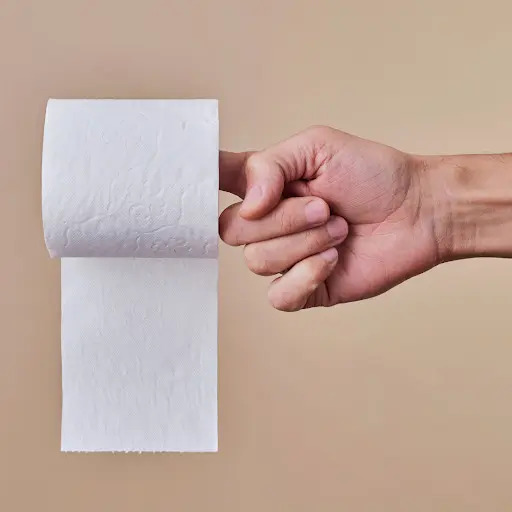Making sure your septic tank is well maintained is an important part of keeping your home safe and comfortable for years to come. Understanding more about how the type of toilet paper you flush affects your septic system can help save time – and money. So if you’re considering making some changes—or simply curious about newer toilet paper alternatives—we have the answers here.
Cases Where Toilet Paper Can Damage Septic Tanks
Toilet paper is designed to break down quickly in water, but not all toilet paper is created equal. Some brands are more likely to cause damage to your septic system than others. Here are some cases where toilet paper can damage septic tanks:
Using Slow-Dissolving Toilet Paper:

Additionally, certain additives used in the manufacturing process can also make toilet paper less dissolvable. For example, some toilet paper may contain chemicals such as bleach or dyes that can make the paper more resistant to breaking down in the water. It is important to choose toilet paper that is designed to dissolve easily in water to avoid potential plumbing issues.
Flushing Excessive Amounts of Toilet Paper:
Flushing large amounts of toilet paper at once can overwhelm your septic system and lead to clogs and backups. Be mindful of how much toilet paper you flush at a time, and avoid flushing large wads of toilet paper. Consider courtesy flushing for your septic systems!
Using Thick or Quilted Toilet Paper:
Thick or quilted toilet paper is designed to be more comfortable, but it can harm your septic system. These types of toilet paper take longer to break down and can cause clogs and backups in your septic tank.
Lion Home Service recommends pumping your septic every two to three years. If you’re using non-dissolvable, quilted, or other toilet paper that takes longer to break down, you may need to consider having your septic system pumped more frequently.
Environmentally-Friendly Alternatives to Regular Toilet Paper:
As the world becomes increasingly aware of the importance of sustainability, many people are looking for ways to reduce their environmental impact. One simple but effective change that can be made is switching to biodegradable or alternative toilet paper. Traditional toilet paper often contains bleaches, dyes, and other chemicals that can harm the environment. Biodegradable or alternative options use fewer chemicals and are made from more eco-friendly materials, such as bamboo or recycled paper. Additionally, these options can typically break down faster with ease compared to traditional toilet paper, which reduces the strain on wastewater treatment systems.
The Difference between Regular, Biodegradable and Alternative Toilet Papers
There are several types of toilet paper available on the market today, and understanding the differences between them can help you make an informed decision.
- Regular toilet paper is made from virgin wood pulp, which means it takes longer to break down in the environment.
- Biodegradable toilet paper, on the other hand, is made from recycled materials and is designed to break down quickly and easily after use.
- Finally, alternative toilet paper, such as bamboo or hemp, is becoming increasingly popular due to its sustainability and eco-friendliness.
Switching to a biodegradable or alternative option can make a big difference for the environment, so next time you’re stocking up on toilet paper, consider which option will best suit your preferences.
If you’ve noticed your pipes clogging easily or more frequently than normal, it’s best to call Northern Colorado’s #1 Choice for Whole Home Service sooner rather than later at (970) 510-0522. We’d be happy to assess the situation and present you with your options if action is needed.
Having isseus with your septic tank? Well, we offer professional septic services in the following locations:
- • Fort Collins septic contractors
- • Loveland septic contractors
- • Greeley septic contractors
- • Longmont septic contractors
- • Windsor septic contractors
- • Boulder septic contractors
- • Estes Park septic contractors
- • Bellvue septic contractors
- • And more!
Leave our Fort Collins septic contractors a review or learn more about our services below:









